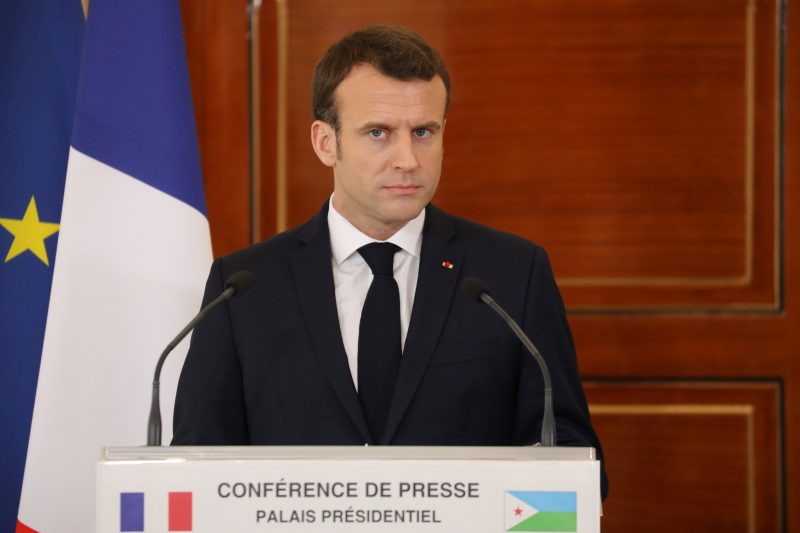European centrists hit by corporate funding controversy
Macron has faced difficulties finding alliance partners at the European level (Ludovic MARIN)
Paris (AFP) – The alliance of centrist political parties in the European parliament faces a corporate funding controversy in France that threatens its tie-up with French President Emmanuel Macron’s new party.
Investigations by French media Le Monde and France 2 earlier this week showed that the liberal ALDE grouping had accepted 425,000 euros (480,000 dollars) since 2014 from major companies including Google, Microsoft and Bayer to pay for its annual conferences.
Such sponsorship would be illegal in France and many other European countries, but is allowed at the level of the European Union.
“None of our European lawmakers will join a political party or grouping during the next parliament which tolerates financing like this,” Stephane Sejourne, campaign director for Macron’s Republic on the Move (REM), warned on Tuesday.
“This is unacceptable in political life that should be beyond suspicion and we will do everything to change the legislation for all European political groupings,” he added in a statement.
Faced with the possibility of losing a vital new partner — Macron’s party swept to power after the last European elections in 2014 — ALDE announced late Tuesday that it would stop taking such donations in the future “to avoid all confusion.”
– ‘Legal’ and ‘very common’ –
The group is currently the fourth biggest in the parliament with 68 seats.
ALDE spokesman Didrik de Schaetzen told AFP that the practice of taking corporate donations was “very common” and “legal”, adding that the funds amounted to around 4.0 percent of the total budget of the party.
“But it’s a discussion that we have always had within the party,” he said.
France’s far-right leader Marine Le Pen focused attention on ALDE’s corporate fundraising last week, highlighting how the grouping had taken money from US seed maker Monsanto, which is now part of German chemicals group Bayer.
Monsanto, which is regularly targeted by environmental activists in France, has lobbied EU lawmakers and the executive arm intensively in the previous years to try to prevent a ban on its controversial weedkiller Roundup.
Roundup contains glyphosate, the most used herbicide around the world, but it has been linked to cancer.
Macron passed a new law earlier in his term in 2017 designed to improve transparency in the French political system and reduce the risk of MPs being swayed by outside interests.
Sejourne said REM would push for the same sort of legislation at the EU level when it unveils its programme for European parliamentary elections in May.
Eurosceptic populists which include Le Pen’s National Rally (RN), are projected to make gains in the elections, but mainstream political groups are on track to retain their majority, according to the latest opinion polls.
Macron, a federalist who has pleaded for more integration of the bloc, has faced difficulties finding alliance partners at the European level.
The European People’s Party — a centre-right conservative grouping but also including MEPs from populist Hungarian premier Victor Orban’s party — is on course to remain the biggest voting bloc in the next parliament, surveys show.
Disclaimer: This story is published from a syndicated feed. Siliconeer does not assume any liability for the above story. Validity of the above story is for 7 Days from original date of publishing. Content copyright AFP.


